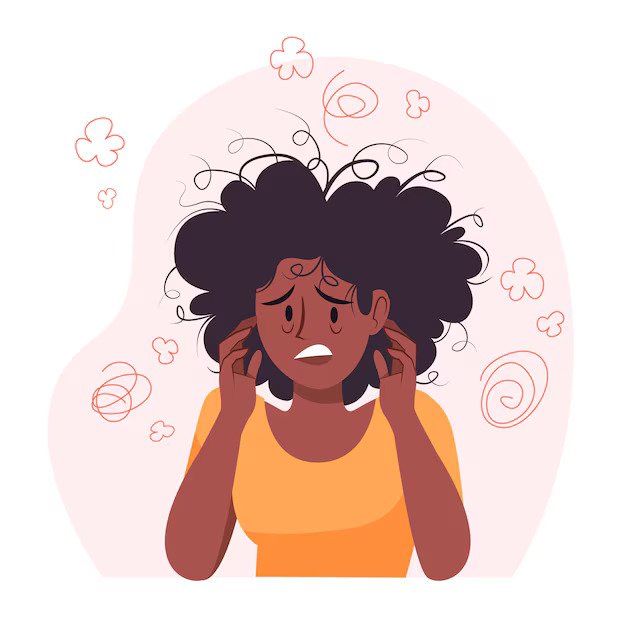Extreme anxiety is a heightened state of distress characterized by overwhelming and persistent feelings of worry, fear, or apprehension. It can significantly impact daily functioning, making it difficult to perform routine tasks, maintain relationships, or focus on work. Symptoms may include intense physical reactions like rapid heartbeat, sweating, or trembling, along with cognitive disturbances such as racing thoughts or constant fears of impending doom.
What is extreme anxiety called?
Extreme anxiety is commonly known as severe anxiety disorder. This condition involves intense and persistent feelings of fear or apprehension that can significantly disrupt daily activities and quality of life. It may present as Generalized Anxiety Disorder (GAD), where individuals experience pervasive worry across various aspects of life, or as Panic Disorder, marked by sudden and overwhelming panic attacks. Severe anxiety can also manifest through symptoms like chronic restlessness, heightened physical responses, and persistent dread.
How Can Therapists Assist with Extreme Anxiety?
Therapists play a crucial role in managing extreme anxiety by providing tailored interventions and support. They offer evidence-based therapies, such as Cognitive Behavioral Therapy (CBT), which helps individuals identify and challenge negative thought patterns and develop healthier coping mechanisms. Therapists also use techniques like exposure therapy to gradually reduce avoidance behaviors and desensitize individuals to anxiety-inducing situations.
What Are the Best Self-Care Practices for Extreme Anxiety?
Setting realistic goals and creating a structured daily routine can help manage extreme anxiety. Pairing these self-care practices with professional “Online therapy” offers comprehensive support to help you cope and find balance in your life.
- Regular Exercise: Engage in physical activities like walking, jogging, or yoga to reduce anxiety and boost overall mood.
- Mindfulness Meditation: Practice mindfulness to stay grounded and reduce anxiety by focusing on the present moment.
- Deep Breathing Exercises: Use deep breathing techniques to calm the nervous system and manage acute anxiety symptoms.
- Healthy Eating: Maintain a balanced diet rich in nutrients to support mental health and stability.
- Adequate Sleep: Prioritize getting sufficient rest each night to improve mood regulation and overall well-being.
- Limit Caffeine and Alcohol: Reduce or eliminate caffeine and alcohol intake, as they can exacerbate anxiety symptoms.
- Journaling: Write down thoughts and feelings to gain clarity and manage anxiety by processing emotions.
- Social Support: Connect with friends and family for emotional support and to share experiences and coping strategies.
- Therapeutic Hobbies: Engage in hobbies or activities that bring joy and relaxation, helping to divert focus from anxiety.
- Progressive Muscle Relaxation: Practice this technique to release physical tension and reduce anxiety symptoms.
- Establish a Routine: Create and stick to a daily routine to provide structure and reduce feelings of unpredictability.
- Mindful Distraction: Use mindful activities such as reading or listening to music to distract from anxious thoughts.
- Limit Exposure to Stressors: Identify and manage sources of stress to reduce overall anxiety levels.
- Seek Professional Help: Consult with a mental health professional for therapy or counseling to address and manage extreme anxiety effectively.
How Extreme Anxiety Can Be Managed
Extreme anxiety can be managed through a combination of self-care and professional support.
- Seek Professional Help: Consult a mental health professional for therapy, such as cognitive-behavioral therapy (CBT), to address anxiety symptoms.
- Medication: In some cases, medication prescribed by a healthcare provider can help manage anxiety levels.
- Practice Mindfulness: Engage in mindfulness meditation to increase awareness and reduce anxiety.
- Develop Coping Skills: Learn and practice healthy coping strategies, such as deep breathing and progressive muscle relaxation.
- Exercise Regularly: Incorporate physical activity into your routine to reduce stress and improve mood.
- Maintain a Healthy Diet: Eat a balanced diet to support overall mental and physical health.
- Establish a Routine: Create and adhere to a daily routine to provide structure and stability.
- Create a Network of Support:-To obtain support and exchange experiences, get in touch with friends, family, or support groups.
- Limit Stimulants: Reduce or avoid caffeine, nicotine, and alcohol, which can exacerbate anxiety symptoms.
- Practice Self-Care: Engage in activities that promote relaxation and self-care, such as hobbies or leisure activities.
- Sleep Hygiene: Prioritize good sleep hygiene to ensure adequate and restorative sleep.
- Set Realistic Goals: Break tasks into manageable steps and set achievable goals to reduce feelings of being overwhelmed.
- Educate Yourself: Learn about anxiety and its management to better understand and handle symptoms.
- Monitor and Adjust: Regularly assess your anxiety management strategies and make adjustments as needed for effectiveness.
In conclusion, extreme anxiety, or severe anxiety disorder, represents a profound level of distress that can drastically affect one’s daily life and overall well-being.
Read more about SEO, Science, History, Programming.



